The tragic events that broke comedy legend Robin Williams
HE PRESENTED a cheery front, but in reality Robin Williams’ life was plagued by a wave of horrific events that chipped away at him.
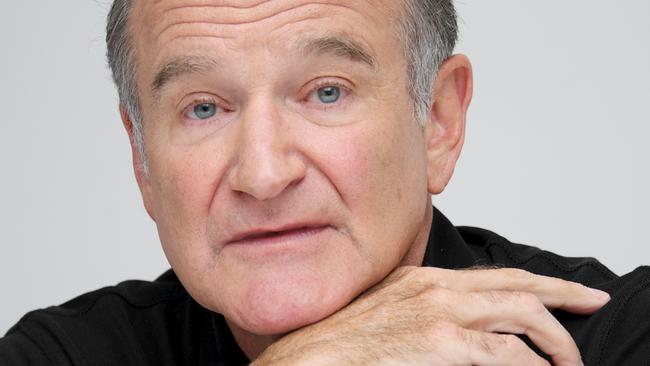
Books
Don't miss out on the headlines from Books. Followed categories will be added to My News.
TO THE world he presented a cheery front, but in reality Robin Williams’ life was plagued by a series of tragic events that chipped away at him until it became too much bear.
For all the highs in Williams’ life there were also extreme lows, and while the world caught glimpses of this darkness, the extent of his suffering was hidden behind closed doors.
A new biography by New York Times reporter Dave Itzkoff, titled Robin, gives insight into the years leading up to the beloved comedian’s untimely death as seen by his close friends and family.
The death of Williams’ close friend Christopher Reeve in 2005, followed by the death of his comedy mentor Richard Pryor just a year later, spun him into a downward spiral.
After being sober for 20 years, Williams started drinking again, a move that put an immense strain on his family and caused lasting damage to his relationships.
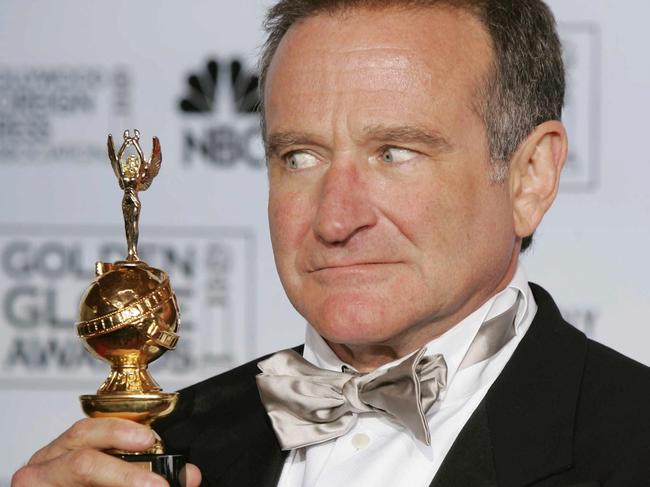
Longtime friend Billy Crystal described this period in Robin’s life as one of the “darkest times” for him and his wife Marsha and children, Zachary, Zelda and Cody.
“It was a test of our friendship. We loved the family, we loved the kids, and they got hurt,” Crystal said.
READ: What Robin Williams was really like
READ: Robin Williams’ daughter’s sweet tribute
Williams’ stint in rehab is where he met his third wife, Susan Schneider, whom he married in 2011 after his drinking seemed to irreparably damage his relationship with Marsha, with the two separating at the end of 2007.
The former Mork & Mindy star spent a period jumping at any role he could get, taking gigs that were a far cry from those the public loved him for like Mrs. Doubtfire, Jumanji and Good Will Hunting.
Knowing that he needed something fresh, Williams developed a new stand-up show, titled Weapons of Self Destruction, which would encompass all his recent struggles.
Unfortunately, his national tour didn’t get far when his health began to rapidly decline at the start of 2009. Doctors discovered he had an irregular heart beat and two damaged valves that needed urgent surgery.
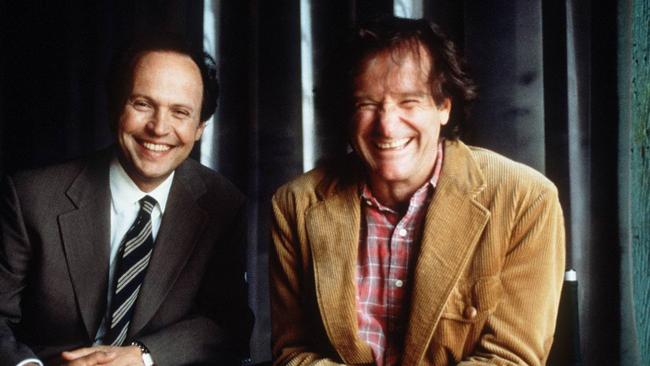
Faced with the possibility of not making it out of surgery, friends and family noticed that something had shifted in Williams’ demeanour.
“When you go through a death scare you realise what he’s realised: how short things are,” Crystal said.
He explained that the surgery made him “be so much more attentive to friends and the kids, and needing that more”.
For a time, the successful surgery seemed to give Williams a new lease on life and he was keen for the world to see him whole again.
He spoke openly about his surgery on the Late Show with David Letterman and was ready to revive his Weapon’s of Self Destruction tour, in which he delved into his constant struggle with alcoholism.
“There’s a voice that tells alcoholics we can drink,” Williams said in the routine.
“It’s the same voice that you hear if you go up to the top of a very large building, and you look over the side — there’s a little voice that goes, ‘Jump! You can fly!’”
His brutal honesty on stage earnt him immense admiration from the public — but underneath his new-found wave of success, the cracks were starting to show.
Williams had been diagnosed with depression and when he stopped using antidepressants, old anxieties began to creep in.
His success from his stand-up was overshadowed by a spate of failed ventures, cancelled plays and bad reviews. His return to the small screen in 2013 staring in a new CBS comedy show, The Crazy Ones, was meant to revive his professional career — but it wasn’t meant to be.
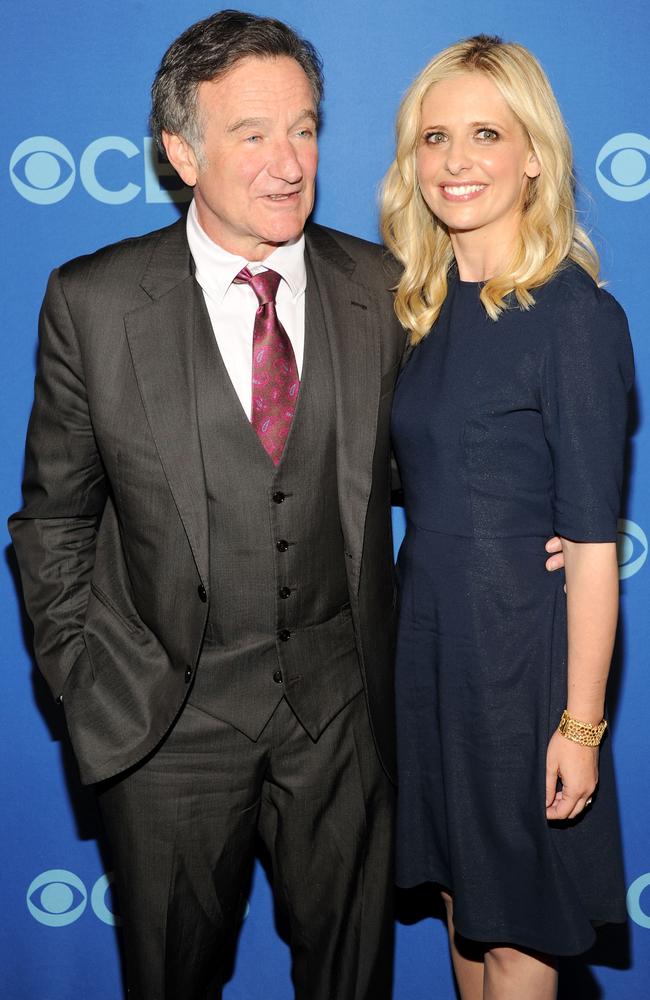
“Williams seems exhausted,” one review of the series read. “So is this show.”
Just a month after the show premiered, those close to Williams began to notice that the spark he was known for had started to fade.
Along with his change in attitude, he was experiencing a number of physical ailments, including stomach cramps, indigestion, having trouble seeing and sleeping.
He lost weight and his once magnetic presence was a shadow of what it used to be.
“It was like playing whack-a-mole. Which symptom is it this month? I thought, is my husband a hypochondriac? We’re chasing it and there’s no answers, and by now we’d tried everything,” Schneider said.
His friends noticed it too, with Rick Overton saying he could see “his eyes dimming”.
Another blow came when The Crazy Ones was axed by CBS in April 2014, and Williams moved on to filming Night at the Museum: Secret of the Tomb.
His mystery illness continued to worsen and drastic weight loss and deteriorating motor skills were becoming more difficult to hide.
Williams’ makeup artist Cheri Minns, described his time filming as a “nightmare”.
“He wasn’t in good shape at all,” she said. “He was sobbing in my arms at the end of every day. It was horrible.”
She recalled one night when Williams broke down after she suggested he return to stand-up comedy: “He just cried and said, ‘I can’t Cheri’. I said, ‘What do you mean, you can’t?’
“He said, ‘I don’t know how anymore. I don’t know how to be funny’.”
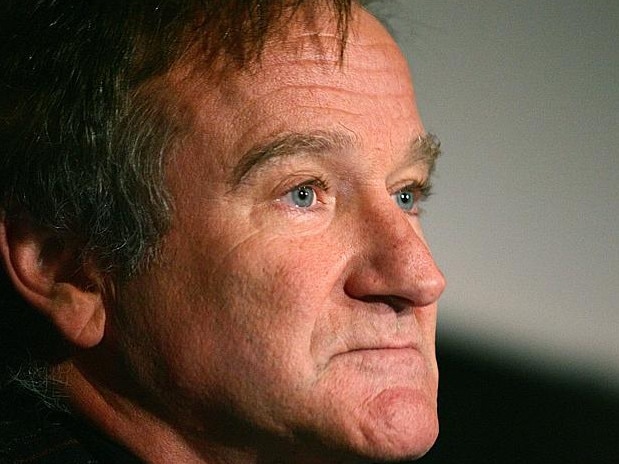
On May 28, 2014, Williams was finally given an explanation for his ailing health when he was diagnosed with Parkinson’s disease. This degenerative disorder would have impaired Williams’ motor functions and cognition until he eventually had no control over his body.
The knowledge that this disease would eventually rob him of all his faculties was the biggest blows he had been dealt in his life so far, and the detrimental affect it had on his mental health was clear.
On August 10, a tumultuous three months after the diagnosis, Williams and Schneider were getting ready for bed.
“As we always did, we said to each other, ‘Goodnight my love’,” Schneider recalled.
She saw Williams head to the separate bedroom he slept in at about 10.30pm, not long after doing some reading on his iPad, something Schneider saw as a good sign.
“He seemed like he was doing better, like he was on the right path of something,” she said.
“I’m thinking, ‘Okay, stuff is working. The medication, he’s getting sleep.’”
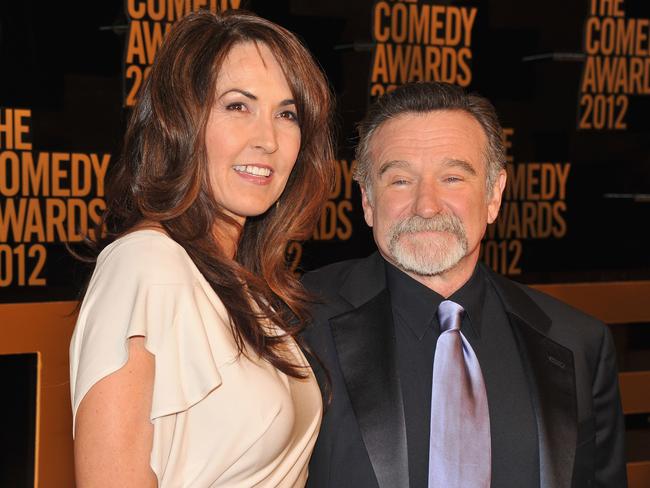
When Schneider woke the next morning she was happy to see Williams’ bedroom door still closed, thinking that he was finally getting some sleep.
When Williams’ long time personal assistance Rebecca Erwin Spencer and her husband Dan came over to the house to visit, they were met with an optimistic Schneider who told them: “He’s getting better”.
But by 11am, when Williams had still not come out of his room, they started to get concerned with Ms Erwin Spencer slipping a note under the door to see if he was okay.
Over 40 minutes later when there was no response, she sent Schneider, who was out running errands, a text to say she was going to wake Williams up.
Ms Erwin Spencer used a paperclip to open the locked door to Williams’ bedroom and made the heartbreaking discovery.
After suffering for years with addiction, depression and more recently his diagnosis, Williams had gotten to the point where he could not longer go on. He had committed suicide.
His death sent shockwaves across the world, with people all over mourning the loss of such a talented comic and beloved public figure.
• If you or someone you know needs help, please contact Lifeline, which has a 24-hour crisis support helpline and suicide prevention services, on 13 11 14.
• If you need help with depression, please see Beyond Blue for a list of organisations that can help.
Robin by Dave Itzkoff, is published by Macmillan. RRP $32.99 from 29 May 2018
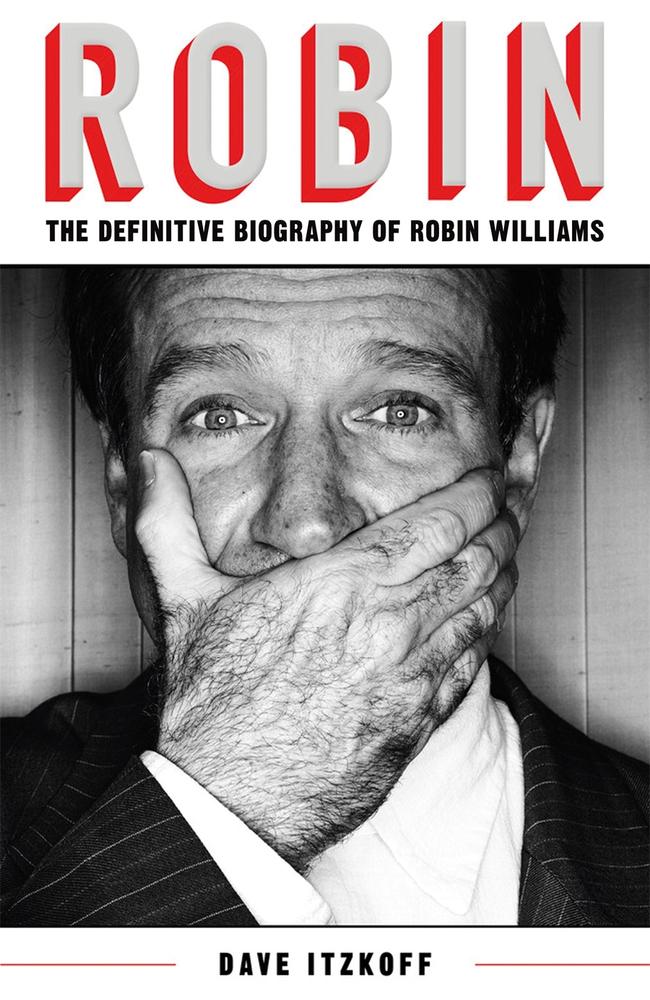
Originally published as The tragic events that broke comedy legend Robin Williams
